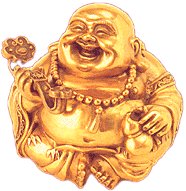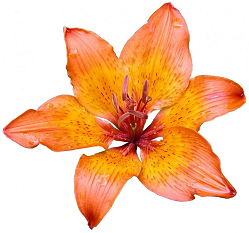|
|



|
|
HOME
Meditation J Krishnamurti Tao Te Ching Dhammapada Buddhist Classics
|
Random Image
A Call To Practice!
Arouse Your Mind and Practice!
Now, all the Buddhas adorn the palace of tranquil extinction [nirvana] because they have renounced desires and practised austerities on the sea of numerous aeons. All sentient beings whirl through the door of the burning house of samsara [the cycle of death and rebirth] because they have not renounced craving and sensuality during lifetimes without measure. Though the heavenly mansions are unobstructed, few are those who go there; for people take the three poisons [greed, hatred and delusion] as their family wealth. Though no one entices others to evil destinies, many are those who go there; for people consider the four snakes [earth, air, fire and water] and the five desires [commonly: wealth, sex, food, fame and sleep] to be precious to their deluded minds.
Who among human beings would not wish to enter the mountains and cultivate the path? But fettered by lust and desires, no one proceeds. But even though people do not return to mountain fastnesses to cultivate the mind, as far as they are able they should not abandon wholesale practices. Those who can abandon their own sensual pleasures will be venerated like saints. Those who practise what is difficult to practise will be revered like buddhas. Those who covet things join Mara's entourage, while those who live with love and compassion are the children of the King of Dharma himself.
High peaks and lofty crags are where the wise dwell. Green pines and deep valleys are where practitioners sojourn. When hungry, they eat fruits to satisfy their famished belly. When thirsty, they drink the flowing streams to quench their feeling of thirst. Though one feeds it with sweets and tenderly cares for it, this body is certain to decay. Though one softly clothes it and carefully protects it, this life force must come to an end. Thus the wise regard the grottoes and caves where echoes resound as a hall for recollecting the Buddha's name. They take the wild geese, plaintively calling, as their closest friends. Though their knees bent in prostration are frozen like ice, they have no longing for warmth. Though their starving bellies feel as if cut by knives, they have no thoughts to search for food.
Suddenly a hundred years will be past; how then can we not practise? How much longer will this life last? Yet still we do not practise, but remain heedless. Those who leave behind the lusts within the mind are called mendicants. Those who do not long for the mundane are called those gone forth into homelessness. A practitioner entangled in the net of the six senses [eyes, ears, nose, tongue, body, mind] is a dog wearing elephant's hide. A person on the path who still longs for the world is a hedgehog entering a rat's den.
Although talented and wise, if a person dwells in the village, all the buddhas feel pity and sadness for him. Though a person does not practise the path, if he dwells in a mountain hut, all the saints are happy with him. Though talented and learned, if a person does not observe the precepts, it is like being directed to a treasure trove but not even starting out. Though practising diligently, if a person has no wisdom, it is like one who wishes to go east but instead turns towards the west. The way of the wise is to prepare rice by steaming rice grains; the way of the ignorant is to prepare rice by steaming sand.
Everyone knows that eating food soothes the pangs of hunger, but no one knows that studying dharma corrects the delusions of the mind. Practice and understanding which are both complete are like the two wheels of a cart. Benefiting oneself and benefiting others are like the two wings of a bird. If a person chants prayers when receiving rice gruel but does not understand the meaning, should he not be ashamed before the donors? If one chants when receiving rice, but does not understand the meaning, should one not be ashamed before the sages and saints?
Humans despise maggots because they do not discriminate between clean and filthy; saints loathe the sramanas [ascetics] who do not differentiate between pure and impure. The precepts are the skilful ladder for leaving behind the clamour of this world and climbing into the empty sky. Therefore, one who wishes to become a field of merit for others while breaking the precepts is like a bird with broken wings who tries to fly into the sky while bearing a tortoise on its back. A person who is not yet liberated from his own transgressions cannot redeem the transgressions of others. But how could one not cultivating the precepts still accept others' offerings?
There is no benefit in nourishing a useless body that does not practise. Despise clinging to this impermanent, evanescent life, it cannot be preserved. People who hope to achieve the virtue of dragons and elephants - that is, eminent monks - must be able to endure long suffering. Those who aspire to the lion's seat of the buddhas must for ever turn their backs on desires and pleasures. A cultivator whose mind is pure will be praised by all the gods, while a person on the path who longs for sex will be abandoned by all the wholesome spirits.
The four great elements will suddenly disperse; they cannot be kept together for long. Today, alas, it is already dusk and we should have been practising since dawn. The pleasures of the world will only bring suffering later, so how can we crave them? One attempt at forbearance conduces to long happiness, so how could we not cultivate? Craving among persons on the path is a disgrace to cultivators. Wealth among those gone forth into homelessness is mocked by the noble. Despite interminable admonitions, craving and clinging are not ended. Despite repeated warnings, lust and clinging are not eradicated. Though the affairs of this world are limitless, we still cannot forsake worldly events. Though plans are endless, we still do not have a mind to stop them.
For todays without end, our days of doing evil have been rife. For tomorrows without end, our days of doing good have been few. For this years without end, we have not reduced the defilements. For next years without end, we have not progressed towards enlightenment.
Hours after hours continue to pass; swiftly the day and night are gone. Days after days continue to pass; swiftly the end of the month is gone. Months and months continue to pass; suddenly next year has arrived. Years after years continue to pass; unexpectedly we have arrived at the portal of death.
A broken cart cannot move; an old person cannot cultivate. Yet still we humans lie, lazy and indolent; still we humans sit, with minds distracted. How many lives have we not cultivated? Yet still we pass the day and night in vain. How many lives have we spent in our useless bodies? Yet still we do not cultivate in this lifetime either. This life must come to an end; but what of the next? Is this not urgent? Is this not urgent?
...Excerpt from Buddhist Scriptures



Contact • Feedback • Typo • Privacy • Home